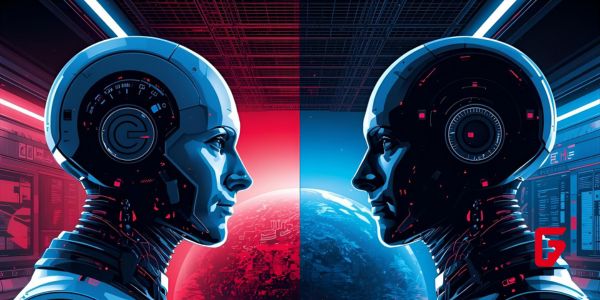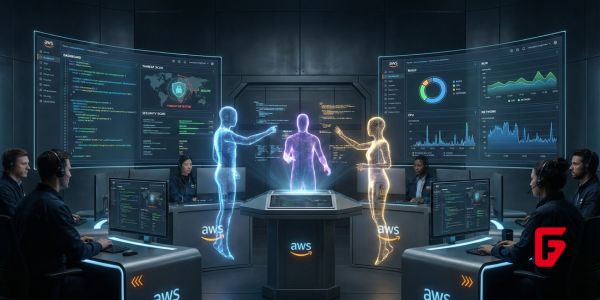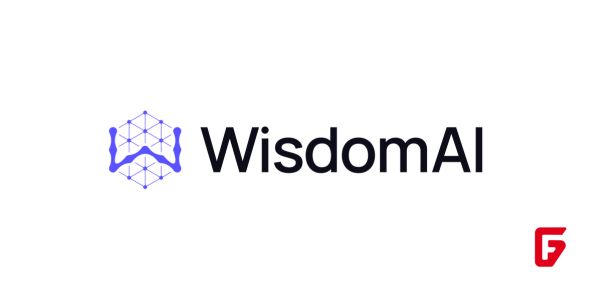Google’s “Big Sleep,” an AI-driven bug hunter developed by DeepMind and Project Zero, autonomously detected 20 security vulnerabilities in popular open-source software.
Each vulnerability was found and reproduced by the AI without human intervention, with human experts only verifying discoveries before reporting.
The announcement marks a pivotal leap for AI-powered vulnerability discovery, but also stirs industry concerns about false positives and “AI slop”.
Google did not disclose specific vulnerability details or severity to protect users until public patches are released.

What makes this achievement stand out isn’t the number of flaws—it’s the process:
Big Sleep ran entirely autonomously: It scanned, detected, and reproduced each vulnerability on its own, acting as a tireless cyber sentry.
Human experts remain in the loop: A cybersecurity specialist verifies every AI-found bug before it’s reported publicly, ensuring that only real threats make it to disclosure and that “AI hallucinations” don’t flood security teams.
This hybrid approach is critical. As Google spokesperson Kimberly Samra says: the AI “performs the heavy, repetitive lifting, while security teams focus on strategy and high-level analysis.”
Yet as agentic bug hunters multiply, so do the challenges:
False positives and “AI slop”: Some software maintainers are swamped with bug reports that look legitimate but are hallucinated—fake bugs generated by overzealous language models.
Human oversight remains essential: While AI can dramatically scale detection, that raw power must be filtered through expert eyes to avoid alert fatigue and wasted resources.
As Royal Hansen, Google’s VP of Engineering, put it: this represents “a new frontier in automated vulnerability discovery.” As AI tools evolve, the challenge will be harnessing their immense potential—without drowning the world in noise.
Big Sleep’s milestone confirms what security insiders have long suspected: the age of autonomous cyber defense is here. With human expertise riding shotgun, these AI-powered sentries could reshape digital security for good—just as long as we keep one hand firmly on the wheel.

Editorial Team
futureTEKnow is a leading source for Technology, Startups, and Business News, spotlighting the most innovative companies and breakthrough trends in emerging tech sectors like Artificial Intelligence (AI), Robotics, and the Space Industry.
Discover the companies and startups shaping tomorrow — explore the future of technology today.

Generative Bionics, an Italian spin-out from IIT, is building Physical AI–powered humanoid robots to tackle labor gaps and modernize industrial

Stay ahead of AI and space tech wars: OpenAI vs Google AI, SpaceX and Blue Origin’s race for orbital data

This article explores 10 AI-driven supply chain optimization companies to watch in 2026, highlighting how their platforms improve forecasting, logistics,

AWS frontier agents introduce a new era of autonomous AI coders that can build, secure, and run applications for days

Explore the cutting-edge ways AI is enhancing Lean Six Sigma, from real-time process insights to predictive controls, ushering in a

Facing supply chain challenges in 2025? High-performing teams leverage AI for risk management, demand forecasting, supplier analytics, and end-to-end visibility

Craft an AI-powered supply chain Center of Excellence that unifies control tower visibility, analytics, and inventory optimization into one strategic

Supply chain leadership is being redefined by AI, intelligent automation, and agentic decision-making, demanding leaders who can engineer end-to-end intelligence

WisdomAI has closed a $50M Series A led by Kleiner Perkins and Nvidia’s NVentures to turn fragmented enterprise data into

Dutch agri-tech startup Saia Agrobotics has raised €10M to expand its greenhouse automation system using AI-powered robots that make farming

Bridgit Mendler’s Northwood Space is pioneering mass-produced ground stations, enabling scalable, high-speed connectivity for the new era of satellite networks

SpaceX aims to nearly double launches from Vandenberg in 2025, facing support from federal agencies but strong objections from the